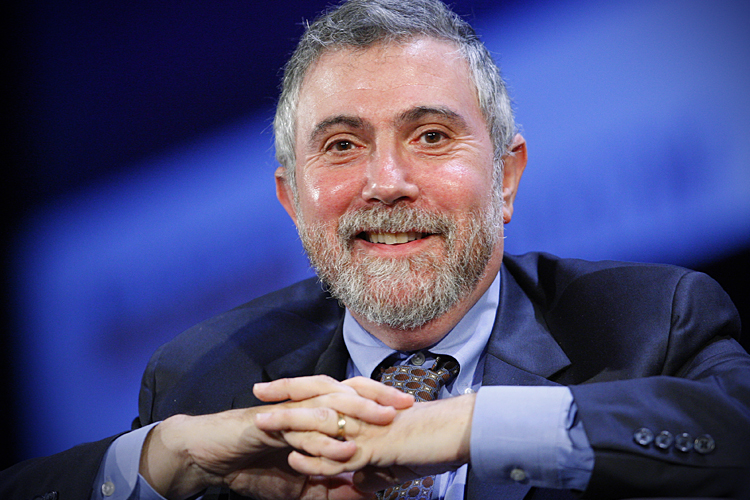Breaking with years of bipartisan austerity, President Obama will unveil a 10-year budget today that proposes massive tax relief for low- and middle-income workers, tax increases on the wealthiest Americans, and massive investments in education and infrastructure. Jettisoning the Beltway’s dearly-held conventional wisdom that policymakers should focus on supposed long-term threats to U.S. solvency, the president’s budget puts its emphasis squarely on tackling the immediate challenges of socioeconomic inequality, decaying infrastructure, and a labor market that, though improving, needs to be grown further. Dealing with such challenges, it just so happens, will also reap long-term benefits.
In his New York Times column this morning, Nobel Prize-winning economist Paul Krugman applauds the president’s willingness to buck the long-termers. This “craven and irresponsible” group of people, as Krugman tars them, have spent the past half-dozen years focusing with laser-like intensity on the purported threat social insurance programs pose to the U.S. government’s long-term fiscal health, even as the nation remained mired in a stagnant recovery. (In Europe, too, policymakers responded to a depressed economy by advocating long-term structural reforms, Krugman observes.)
What’s wrong with worrying about the long term? Krugman identifies two crucial problems: First, the long-termers’ policy crusades have detracted attention from the real crises we confront in the here-and-now. Second, it’s by no means clear that their projections of doom will bear out. For instance, health care costs — long identified as a potential death knell for Medicare — continue to grow at a remarkably slow rate, for reasons well beyond the recent economic slump.
Now, when Obama presents Congress with his budget today, centrist deficit hawks and newly-empowered Republicans will undoubtedly assail it as irresponsible and nothing short of an insult to our children and grandchildren. But Obama’s critics are actually the ones engaged in a “cop-out,” Krugman argues:
It goes without saying that Mr. Obama’s fiscal proposals, like everything he does, will be attacked by Republicans. He’s also, however, sure to face criticism from self-proclaimed centrists accusing him of irresponsibly abandoning the fight against long-term budget deficits.
So it’s important to understand who’s really irresponsible here. In today’s economic and political environment, long-termism is a cop-out, a dodge, a way to avoid sticking your neck out. And it’s refreshing to see signs that Mr. Obama is willing to break with the long-termers and focus on the here and now.

